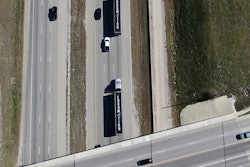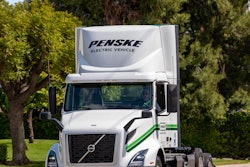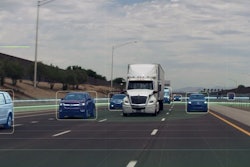Trucking news and briefs for Thursday, June 24, 2021:
AB 5 injunction to remain in place as case elevates to Supreme Court
With the California Trucking Association planning to file a petition for a writ of certiorari in the U.S. Supreme Court to have the case reviewed by the nation’s highest court, the Ninth Circuit Court of Appeals has granted a motion to temporarily keep the preliminary injunction in place that exempted the trucking industry from the law.
That same court on Monday denied CTA’s request for a rehearing of the case after ruling in April that AB 5’s ABC test for determining independent contractor status in California should apply to the trucking industry, essentially banning the leased owner-operator model in the state.
In its motion to grant the stay of the injunction, the Ninth Circuit says the injunction will remain in place pending the Supreme Court’s decision on whether to hear the case. If SCOTUS chooses to hear the case, the injunction will be stayed until the Supreme Court’s disposition of the case. If SCOTUS declines to hear the case, the injunction will be lifted immediately.
Embark going public in $5.2 billion deal, Chao joins Board
Embark Trucks, an autonomous trucking software development firm, will go public with a nearly $5.2 billion market capitalization value after reaching an agreement with a publicly traded special purpose acquisition company (SPAC), Northern Genesis Acquisition Corp. II.
In addition to the acquisition agreement, Embark also announced that former Department of Transportation Secretary Elaine Chao has joined the company’s Board of Directors.
Embark, through its Partner Development Program, is currently working with shippers and carriers including Anheuser-Busch InBev, HP Inc., Werner Enterprises, Mesilla Valley Transportation, and Bison Transport, to help prepare their fleets to integrate self-driving technology and scale with Embark’s technology. Embark has logged more than one million real-world miles without a DOT-reportable incident using its technology.
The transaction reflects an equity value of $5.16 billion and enterprise value of $4.55 billion. Upon closing, the combined company is expected to receive approximately $614 million of gross cash proceeds, comprised of approximately $414 million of cash held in the trust account of Northern Genesis 2, and a $200 million fully committed private investment at $10 per share.
“The recent accomplishment of key technical milestones – including handling highway work zones on the fly – and the announcement of our Partner Development Program mark the start of Embark’s transition from research to commercialization,” said Alex Rodrigues, co-founder and CEO of Embark. “After many years of R&D on the world’s most mature self-driving truck software stack, we plan to enable carrier operation of self-driving trucks in the U.S. sunbelt beginning in 2024. Following the transaction with Northern Genesis we expect to have a war chest that fully funds this commercialization plan, and then some.”
The Boards of Directors for both Embark and Northern Genesis 2 have unanimously approved the proposed business combination, which is expected to be completed in the second half of 2021.
FTR’s Shippers Conditions improved in April
FTR’s Shippers Conditions Index (SCI) for April improved to a -11.9 reading from the previous month’s record low of -17.8, due in large part to lower fuel costs and weaker freight volume, offsetting tough utilization and rates. Conditions for shippers are forecast to improve but remain negative into 2022.
“Shippers conditions improved in April but are likely to remain decently negative through the balance of the year as utilization, rates and overall transportation capacity remain tight,” said Todd Tranausky, vice president of rail and intermodal at FTR. “While April reflected some improvement, it is important to put that gain in the context of March’s record negative result. So, while things improved in April, they did so from an incredibly weak level, meaning conditions remain highly challenged for shippers in the marketplace across all modes.”
FTR’s SCI is calculated based on freight demand, freight rates, fleet capacity and fuel price.












